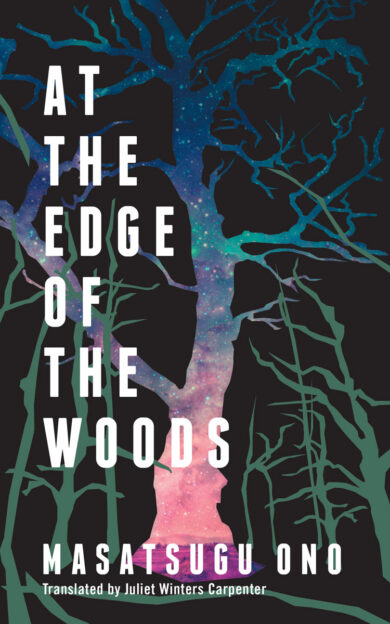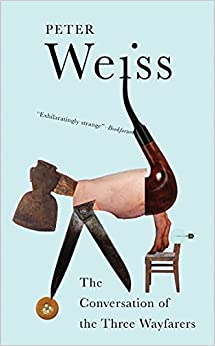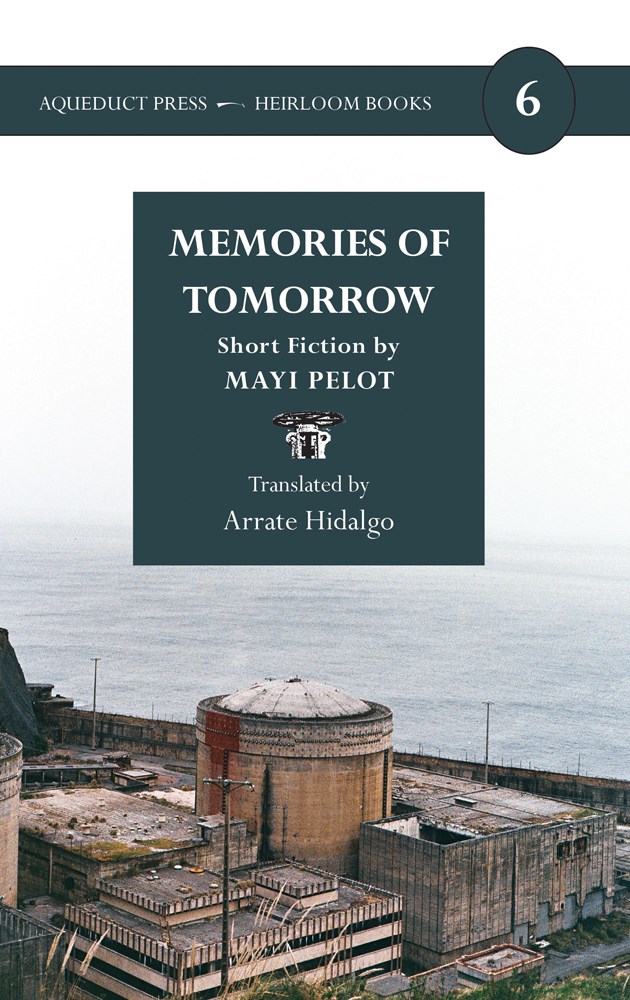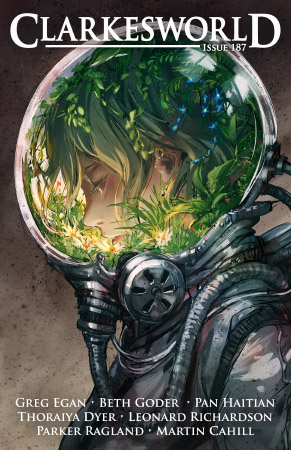SHORT STORIES
“Commencement Address” by , translated from the Chinese by
NOVELS
 At the Edge of the Woods by Masatsugu Ono, translated from the Japanese by Juliet Winters Carpenter (Two Lines Press, April 12)
At the Edge of the Woods by Masatsugu Ono, translated from the Japanese by Juliet Winters Carpenter (Two Lines Press, April 12)
In an unnamed foreign country, a family of three is settling into a house at the edge of the woods. But something is off. A sound, at first like coughing and then like laughter, emanates from the nearby forest. Fantastical creatures, it is said, live out there in a castle where feudal lords reigned and Resistance fighters fell. When the mother, fearing another miscarriage, returns to her family’s home to give birth to a second child, father and son are left to their own devices in rural isolation. Haunted by the ever-present woods, they look on as the TV flashes with floods and processions of refugees. The boy brings a mysterious half-naked old woman home, but before the father can make sense of her presence, she disappears. A mail carrier with gnashing teeth visits to deliver nothing but gossip of violence. A tree stump in the yard refuses to die, no matter how generously the poison is applied. An allegory for alienation and climate catastrophe unlike any other, At the Edge of the Woods is a psychological tale where myth and fantasy are not the dominion of childhood innocence but the poison fruit borne of the paranoia and violence of contemporary life.
 Conversation of the Three Wayfarers by Peter Weiss, translated from the German by E.B. Garside (New Directions, April 22)
Conversation of the Three Wayfarers by Peter Weiss, translated from the German by E.B. Garside (New Directions, April 22)
Conversation of the Three Wayfarers is a tale overheard, rather than told directly. Abel, Babel, and Cabel, the wayfarers, carry on a three-sided monologue, each reporting curious incidents—the effect is of three capers rolled into one: a steeplechase performed on a floating pontoon. But are they really three distinct individuals? Why do their lives blend in such a fantastic manner? Weiss’s strikingly original prose has an impossibly contained quality, with each sentence doing a perfect double-double backflip before neatly landing. This essential rediscovered work, from the masterful and acclaimed German modernist Peter Weiss, will be a delightful discovery for readers of Kafka, Musil, and Gombrowicz.
COLLECTIONS
 Memories of Tomorrow by Mayi Pelot, translated from the Basque by Arrate Hidalgo (Aqueduct Press, April 1)
Memories of Tomorrow by Mayi Pelot, translated from the Basque by Arrate Hidalgo (Aqueduct Press, April 1)
Memories of Tomorrow collects a set of vibrant and enigmatic visions that emanated from one of the most creative minds of contemporary Basque literature. Often unnoticed by the established canon, Mayi Pelot has been uncovered and championed in recent years as one of the first genre authors in the language. Her publications, despite their brief span—from 1982 to 1992—undeniably laid the groundwork for future generations of Basque science fiction writers.
INTERVIEWS
“U npredictable Changes and Surprises: A Conversation with Djuna” by Gord Sellar and Jihyun Park (Clarkesworld)
npredictable Changes and Surprises: A Conversation with Djuna” by Gord Sellar and Jihyun Park (Clarkesworld)
